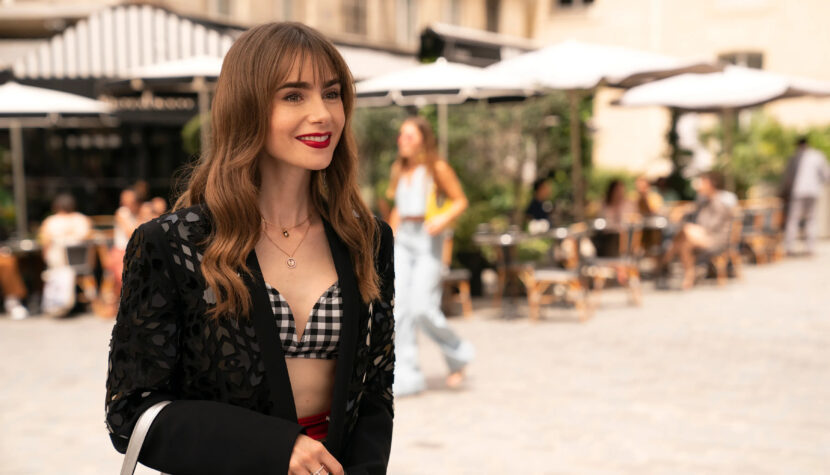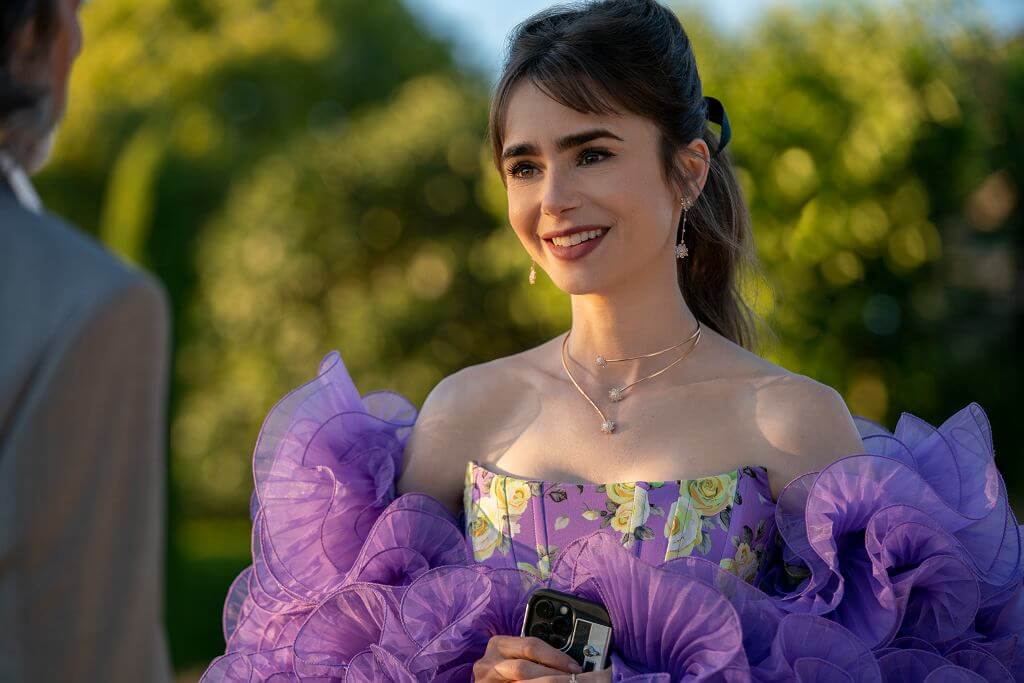EMILY IN PARIS – SEASON 3. Sweet fairy tale

The sweet, sugary, imaginative third season of the popular rom-com series Emily in Paris has arrived on Netflix – just in time for the Christmas and New Year period. The previous two seasons were beaten by film critics and many viewers who accused him of ignorance and using stereotypes. Did the creators of the series learn from this in the third season?
Unfortunately, Emily in Paris has a bad reputation. It’s about the controversy surrounding the Golden Globe nominations. In February 2021, the Hollywood Foreign Press Association announced the list of nominees, giving Emily in Paris two nominations – for Lily Collins as Best Actress and for Best Comedy or Musical Series. This decision caused a lot of uproar in the film community, which pointed out to the Association for favoring mediocre production and excluding such a great series created by black creators as I may destroy you.
In the same month, two Los Angeles Times journalists, Josh Rottenberg and Stacy Perman, published an article in which they revealed details of the investigation into corruption in the Association. It turned out that bribery for members of the association (which at that time did not have any black members!) by producers and filmmakers was commonplace. It was revealed that in 2019, over 30 members of the Association visited the set of Emily in Paris at the invitation of the producers, where they were provided with a stay in a five-star hotel and many other amenities and attractions.

Because of this controversy, it’s hard to watch Emily in Paris with a positive attitude. The cheek and privilege of the creators of the series, who tried to bribe voters, are felt on the screen. Such is also the main character of the series, the titular Emily Cooper (Lily Collins), a marketer who moves from Chicago to Paris in the first season to breathe the American spirit into the company’s branch in the French capital. Over the seasons, we observe her ups and downs – both professional and love – but what comes to the fore and is the most striking is the main character’s gigantic ignorance and superficial character creations.
Emily is so focused on herself that she doesn’t even try to get to know the country she moved to or understand its people. She also doesn’t bother learning French. The heroine is shallow and superficial, and France and the French are nothing more than a collection of stereotypes for her. Emily is sweet to the point of vomiting, always smiling, cheerful and full of energy. She succeeds in everything and emerges victorious from every oppression. She’s a bit like your old meme friend’s perfect daughter who’s hard to like.
Related:
The creators took the critical comments of the viewers to heart and decided to do something about it. In the third season, they are much more reflective, and their characters are a bit more interesting and in-depth. Emily is finally able to speak French and seems more mature, both emotionally and professionally. The creators present her with difficult decisions that she will have to make when she finds herself at a crossroads in her life. In her private life, she dates the British man Alfie (Lucien Laviscount), although she still has much in common with the handsome chef Gabriel (Lucas Bravo), whose relationship with Camille (Camille Razat) has had its ups and downs this season.

Emily still tends to be ignorant, but the other characters score that. “Thank you for explaining the concepts of supply and demand,” Antoine (William Abadie), owner of the luxury perfume company Maison Laveau, operated by her marketing agency, ironically tells her. We also learn more about the life of Emily’s charismatic boss, Sylvie (Philippine Leroy-Beaulieu). The friend of the main character, the singer Mindy (Ashley Park), is also much more nuanced – in previous seasons, the creators were accused of making this character a racist stereotype of a rich Asian woman.
Emily in Paris is still a banal and superficial series, but as casual entertainment it has an undeniable charm. The series is pleasing to the eye – Paris appears as a perfect postcard city, and the phenomenal outfits of the main characters shimmer against its background. It’s all thanks to the great costume designer Marilyn Fitoussi. Despite its superficiality, Emily in Paris is a light and undemanding series that, while irritating, is the definition of a serial guilty pleasure.





